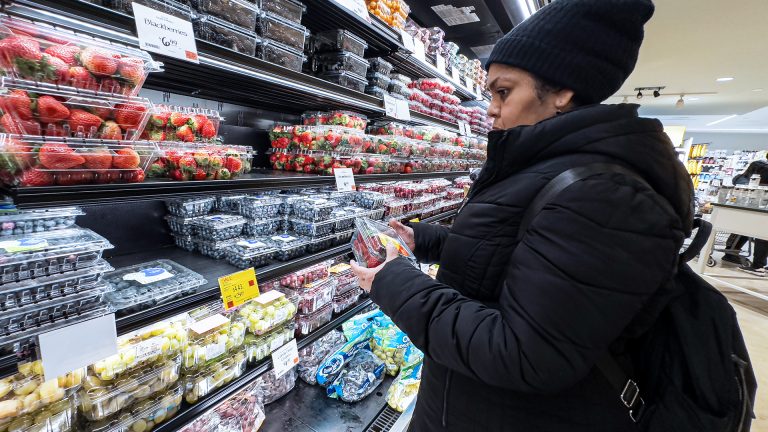WASHINGTON, D.C. – More than half a million federal furloughed employees will miss their first full paychecks this week due to the government shutdown. Many of those affected are turning to their faith for tangible help.
The Cathedral of St. Matthew the Apostle is considered the mother church of Washington’s Catholic archdiocese. It serves a diverse parish of about 2,200, and lately, many here feel the sting of the government shutdown.
Monsignor Ronald Jameson told us, “I’m sensing a real sense of, you might even call it fear.”
Monsignor Ronald Jameson, the priest of St. Matthew’s, says his majority young-adult congregation is fresh out of college, often living from paycheck to paycheck and among the most vulnerable.
“What they’re sensing is that paycheck that I was expecting now isn’t coming. What about my rent? What about my mortgage? Just, what about just the daily expenses that I have?” Jameson explained.
They’re now turning to the church, Jameson says, for more than a message of hope.
“It’s not their problem, it’s our problem. I think then we have to look beyond the spiritual and to see how that can be put into concrete action for their benefit,” said Jameson.
In recent weeks, Jameson and his staff have worked vigorously to meet immediate needs through grocery gift cards and financial assistance. Resume writing workshops are also scheduled as St. Matthew’s joins a number of churches across the country seeking to mend the increased need.
“We will get through, but it’s going to take action. It’s going to take advocacy,” said Terry Lynch, executive director of the Downtown Cluster of Congregations.
This non-profit agency serves 40 local congregations, including St. Matthew. During the shutdown, Lynch and his team send out a weekly list of aid resources, as many furloughed workers struggle to manage even their basic necessities.
“Utilities. The rent check. Once you’re maxed out on your credit card… So it’s going to be a long rebuilding when the government opens, because these people have had to build up a debt,” said Lynch.
In recent weeks, houses of worship have also offered online prayer groups, in-person listening circles, as well as providing loans to help people facing this reality of uncertainty.
“What we have to do is to accompany them, you know, not just say, oh, that’s fine, it’ll work out. No, no, no. But rather it’s saying, ‘I’m here… I walk with you, you know, throughout this,’ because each day will change. And I think that accompaniment is so big,” Jameson said.
Helping people through hardship while pointing them to Jesus is, according to Jameson, a recipe that can ultimately strengthen one’s faith.


